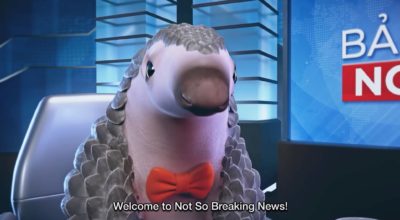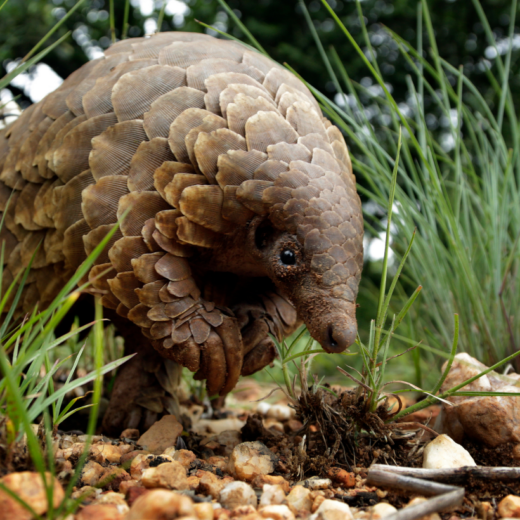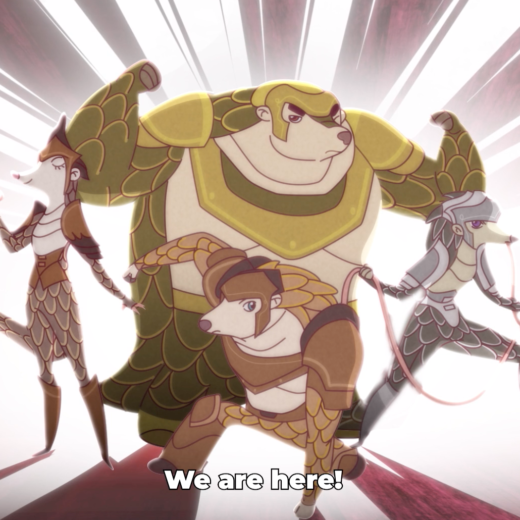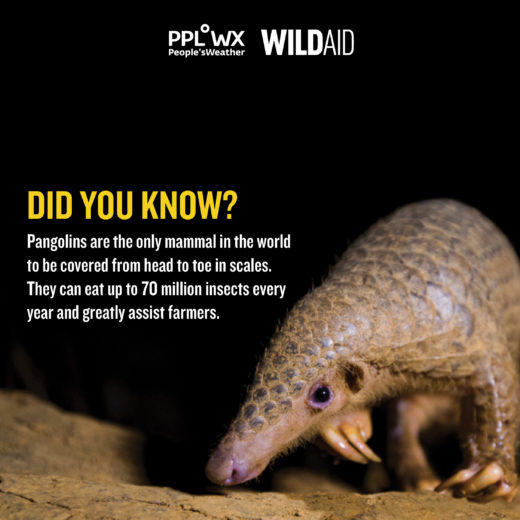
PRESS RELEASE
Ho Chi Minh City, Vietnam – May 7, 2021, WildAid and CHANGE today launched the ‘Pangolins Are Still Endangered’ campaign to highlight the alarming rate of poaching and consumption of pangolins in Vietnam. Kicking off the campaign is the ‘Not-So Breaking News’ video PSA, which will raise awareness for the plight of the pangolin and call on the general public to protect this endangered animal, with the message “The more we know, the less we harm pangolins.”
For this new PSA, WildAid and CHANGE aim to create a connection between pangolins and the public by introducing viewers to a pangolin reporter character. The thinking behind the PSA is that we are all familiar with a reporter, but a pangolin speaking up for its species extinction is unusual, which makes us question the pangolin’s current situation in Vietnam. Although pangolins are protected by Vietnamese law, news stories about pangolin poaching and trading are rare. Over the coming months, this PSA and campaign will be broadcast on media channels across Vietnam, with a particular focus on the provinces and cities where poaching and consumption of pangolin are still taking place.
“Over the years of carrying out many campaigns, we have found that creative campaigns make a bigger impact on changing public perception and behavior. In a society with so many modern tools and so much information, it is difficult to grab people’s attention to read an in-depth article about pangolins,” said Ms Nguyen Ngoc Thanh Han, Wildlife Program Manager at CHANGE. “But a unique and innovative 30 seconds clip with detailed information and the ability to adapt the PSA across many media platforms and communications channels will easily attract curious people and ensure that the campaign’s message reaches millions of people,” added Ms Nguyen.
Pangolins have long been believed to be a cure and traditional medicine in Asia. Whole or parts of pangolins such as scales and fetuses are popular ingredients in high demand. Not only are pangolins poached for traditional medicine, but they are also hunted for food. Pangolin meat and products are considered a luxury throughout Asia and are viewed as a status symbol.
According to an International Union for Conservation of Nature (IUCN) report, more than 1 million pangolins have been illegally traded in just ten years, making them the most trafficked mammals in the world. The IUCN estimates that a pangolin is captured from the wild every 5 minutes, totaling over 200,000 pangolins annually. Vietnam plays a prominent role in the supply chain and is one of the leading countries in supplying, importing and consuming pangolin products. More than 8 tons of pangolin scales were seized in 2019, making Vietnam the world leader in the number of pangolin scales seized. According to a WCS report, in the last 30 years, Vietnam has lost about 80-90% of its pangolin population due to illegal hunting and consumption, despite the country’s punishments of up to 15 years in prison for these crimes.
The ‘Pangolins Are Still Endangered’ campaign is made possible through the generous support of the Pangolin Crisis Fund, Royal Netherlands Embassy and media partners Chicilon Media, Movad, Dinosaur Vietnam and TikTok.
Stay in touch and get the latest WildAid updates.
SIGN UPAbout WildAid
WildAid is a non-profit organization with a mission to protect wildlife from illegal trade and other imminent threats. While most wildlife conservation groups focus on protecting animals from poaching, WildAid primarily works to reduce global consumption of wildlife products such as elephant ivory, rhino horn and shark fin soup. With an unrivaled portfolio of celebrity ambassadors and a global network of media partners, WildAid leverages more than $308 million in annual pro-bono media support with a simple message: When the Buying Stops, the Killing Can Too.
Journalists on deadline may email communications@wildaid.org


